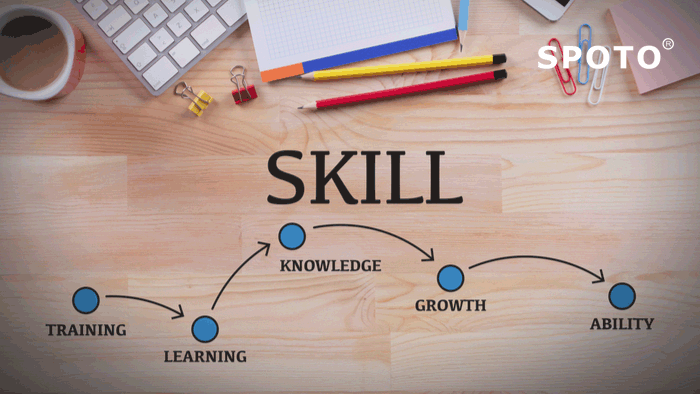Cisco has been providing certification for its Cisco products. These certifications prove that the certificate holders have sufficient ability to use these Cisco products and have all the knowledge required to operate them. CCNP (Cisco Certified Network Expert) is a certification provided by Cisco that focuses on the knowledge and skills of candidates to plan, verify, implement, and troubleshoot corporate networks (LAN and WAN). This certificate is very convenient for anyone who wants to develop their profession and knowledge in a more complex network solution. It proves that the certificate holder has the necessary knowledge and skills to be a network technician, network engineer, system engineer, and support engineer. It shows that the capabilities of the certificate holder are comparable to current network technology and network functions.
Importance of developing skills
Without installation, planning, implementation, and troubleshooting skills related to Cisco products, no one will be able to complete the CCNP certification. Without these skills, candidates do not even know where to start, how to use the product, how to operate them, and how to solve any problems related to Cisco products. Without these skills, candidates will not be able to obtain certification. Therefore, candidates will have to develop skills associated with IP routing, IP switching networks, IP network maintenance, and IP network troubleshooting. If a candidate can develop these skills, then the person is likely to be certified.
More Read: What Computer Jobs Will Rule in the Future?

Many candidates make the mistake of only studying the theoretical part of the test subject. They never consider developing skills related to these exam topics. It is where they are wrong. In addition to the theoretical part of the exam theme, they should also concentrate on developing skills related to the exam theme. With these skills, candidates will be able to apply this knowledge during the exam.
Routing skills development
The CCNA certification exam will test the skills, knowledge, and ability to perform routing in Cisco routers. Candidates need to know how to plan, configure, implement, and verify WAN and LAN enterprise solutions by using various routing protocols. According to the given requirements and network design, candidates must face problems related to the implementation of OSPF, EIGRP, IPv4-based solutions, IPv6-based solutions, essential remote workers, and Layer 3 path control solutions. Besides, candidates must also acquire skills related to network principles, VPN technology, layer two technology, layer three technology, infrastructure services, and infrastructure security. By developing all these routing-related skills, candidates will be able to face any routing-related issues in the CCNP certification exam.
Switching skills development
Another set of skills a candidate must possess is conversion skills. These skills are essential for planning, configuring, implementing, verifying, and resolving exchange solutions. If these operations cannot be performed effectively, candidates will not be able to answer the questions raised in the exam correctly. If they want to face the problem of implementing security extensions with layer two solutions, switch-based segment three services, VLAN-based solutions, and high availability based on given requirements and network design without proper switching skills.
Besides, CCNP needs to develop skills related to the following topics:
- Infrastructure services
- Infrastructure security
- Layer 2 technologies
When developing exchange skills, candidates must focus on developing skills in the enterprise architecture of the Cisco campus. If the candidate wants to cover all issues related to the Cisco IP switching network, they must focus on developing switching skills.
Troubleshooting Cisco IP Networks skills development
In this part, candidates will have to face problems in planning and performing regular maintenance of routing and switching networks. Candidates need to possess all the necessary skills to complete the questions raised in this section. It is not enough to just read the network troubleshooting and maintenance of the theoretical part. The theoretical knowledge only provides the applicant with information on how to troubleshoot and maintain the IP network. If they do not practice IP networks in a real environment, they will not know how to perform troubleshooting and maintenance. It is why troubleshooting and maintaining the Cisco IP network is vital for obtaining CCNP certification.
It is essential to understand the importance of developing CCNP certification skills. Candidates must be able to develop skills related to network infrastructure management in large enterprises. Candidates must develop skills related to the planning, installation, configuration, management, and troubleshooting of computer networks. After developing these skills, candidates will be able to face issues related to the routing, switching, maintenance, and troubleshooting of Cisco IP networks.Candidates must ensure that they acquire practical knowledge and skills as well as theoretical knowledge.
Thus it’s become of utmost importance to develop skills related to:
- Designing of larger networks
- Routing inter-VLAN
- Configuration of MST (Multiple Spanning Tree Protocol)
- Troubleshooting of LAN
- Troubleshooting of EIGRP
These skills can be developed by building Cisco laboratories using the correct Cisco router and switch models. If the candidate cannot formulate Cisco Labs, then they can apply online simulations to practice. In addition to using the necessary training videos, online classrooms, practice tests, and books can also help develop CCNP certification skills. It is why developing skills in routing, switching, maintenance, and troubleshooting of IP networks is very important for obtaining CCNP certification.













Comments